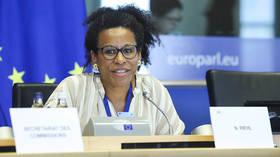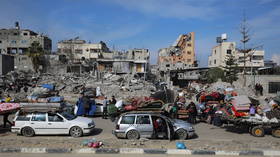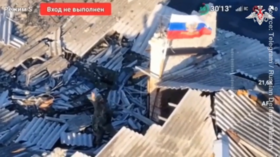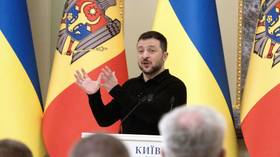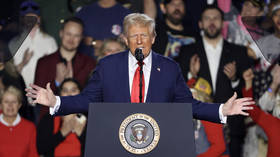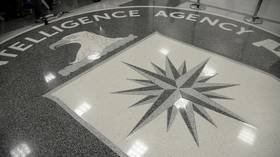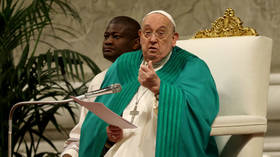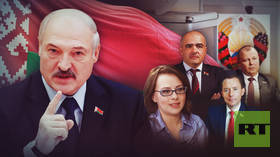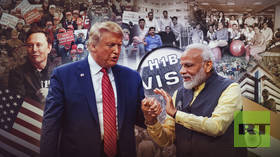Britain to double aid to Syrian opposition in 2014 - Cameron
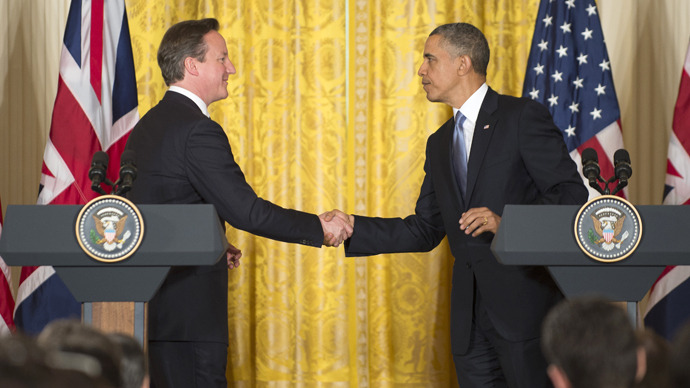
Britain will double support for the Syrian opposition in 2014 with shipping more non-lethal military aid, PM David Cameron said as he and President Obama agreed to pressure on Assad while meeting in Washington.
Cameron has vowed an extra £10 million for non-lethal equipment
and £30 million more for humanitarian assistance for Syrian people
as the two politicians outlined further steps to “bring to an
end the killing” of Syrian people.
“We will double non-lethal support to the Syrian opposition in
the coming year. Armored vehicles, body armor and power generators
are about to be shipped,” Cameron said at the press conference
after an Oval Office meeting with US president Barack Obama.
Britain’s actions in Syria completely coincide with the US plans
that the Obama administration voiced last week. Speaking after a
meeting of the Syrian opposition, US Secretary of State John Kerry
said the United States would double its non-lethal aid to
opposition forces in Syria in the coming year bringing the total
sum to $250 million.
As for arming the Syrian opposition, Britain claims it has not
“made decision to arm opposition groups in Syria”, however,
Cameron said that it “is pushing for more flexibility in the EU
arms embargo”.
“What we have done is we have amended the EU arms embargo in
order that we can give technical assistance and technical
advice,” he said.
He also said that UK will continue to examine the embargo to
“see if we need to make further changes”.
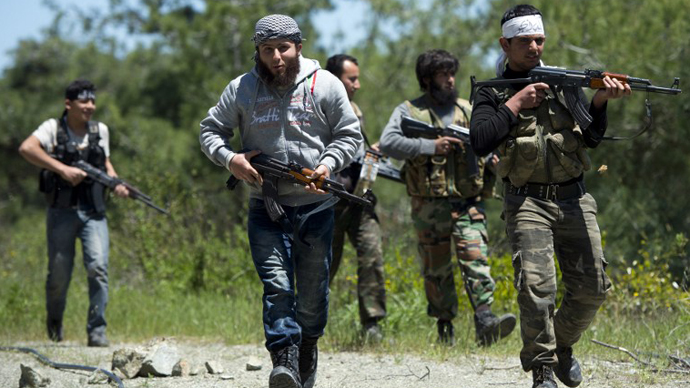
The current sanctions recently amended in April allow the supply
of certain non-lethal equipment as well as technical and financing
assistance related to it. However, a recently leaked six-page long
draft proposal revealed the UK proposed two options to EU diplomats
to amend the current embargo: the first, full exemption of Syrian
National Coalition for Opposition and Revolutionary forces from the
arms embargo and the second, to remove ‘non-lethal’ language to
allow shipment lethal equipment to Syria.
Cameron said Assad had to realize there could be no military
victory for his forces.
President Obama has backed Cameron’s words. From his side, he said
that the “work to establish the use of chemical weapon in
Syria” will continue and the findings “will help guide”
the next steps.
Obama said the US would be "very persistent" in pursuing a
peaceful political transition that leads to Assad's exit but leaves
Syria "intact".
"I'm not promising it is going to be successful. Frankly,
sometimes once the furies have been unleashed in a situation like
we are seeing in Syria, it's very hard to put things back
together," Obama said.
Both Cameron and Obama welcomed “successful” talks the Prime
Minister had with Russia’s President Vladimir Putin, at which the
two leaders sought to hammer out a common approach to ending Syrian
conflict.
“There is now common ground between the US, UK, Russia and many
others that whatever our differences we have the same aim, a
stable, inclusive and peaceful Syria free from the scourge of
extremists,” Cameron said.
The plan to organize an international conference to bring the sides of the Syrian conflict to the negotiating table was announced last week by Russian Foreign Minister Sergey Lavrov and US Secretary of State John Kerry.
Syria has recently become an issue of heated debate
between Western powers after the UK Ministry of Defense claimed the
use of chemical weapons by the Syrian troops after allegedly
analyzing soil smuggled out of the country in a secret British
operation.
The UN followed up alarming claim of 'evidence' and conducted its
separate investigation. Though no “conclusive findings” were reached,
the UN’s independent inquiry revealed after interviewing
“victims, doctors and field
hospitals in neighboring countries” that there is
“strong, concrete suspicions but
not yet incontrovertible proof” that the rebels not the
government forces used sarin gas.
However, despite the conclusions of the UN, Washington said it
remained “highly
skeptical” about the use of chemical weapons by the
opposition fighters, Britain also claimed there was no evidence of
that. Along with France, it has been pushing other EU members to
ease the bloc’s ban on weapon supplies to the Syrian
rebels.



